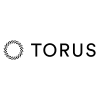Dive Brief:
- Utility regulators in Washington, D.C., are considering a "lightened regulation" or "light touch" approach to microgrid rules, in an effort to facilitate deployment of more renewable energy and storage in the city.
- The Public Service Commission (PSC) on July 17 issued a notice of inquiry (NOI) regarding potential development of a regulatory framework for microgrids. The proceeding is part of the DC PowerPath process to overhaul and decarbonize the city's electric grid.
- Developing a regulatory approach to microgrids is a "critical step" in the city's efforts to implement its climate action plan, according to David Smedick, a Sierra Club senior campaign representative for the group's Beyond Coal and Dirty Fuels Campaigns.
Dive Insight:
The district is aiming to deliver 100% renewable energy by 2032, and observers say microgrids will be a key strategy. Regulators have indicated they want to ensure their approach does not dissuade development, while still addressing key issues of safety and consumer protection.
"For microgrids that may fall under our regulatory authority, the threshold question is whether and to what extent we should employ a different paradigm such as 'lightened regulation' or 'light touch or light-handed' oversight to facilitate deployment," the PSC said in its NOI.
Regulators said the terms are "used interchangeably to refer to exempting a microgrid from traditional commission regulations" including making annual reports and filing rate schedules and tariffs.
Microgrids will be a key to the city's grid modernization efforts, according to stakeholders.
"We need safe, reliable, and dynamic microgrids in the District to power and empower communities," Smedick said in an email. The city's climate plan, Clean Energy DC, has identified electrification of buildings and transportation networks as two keys to reducing carbon emissions and improving energy efficiency.
The PSC's microgrid proceeding "is an opportunity for the District to make sure the dots in Clean Energy DC are fully connected," Smedick said.
Exelon subsidiary Potomac Electric Power (Pepco), which serves the D.C. area, is reviewing the PSC's microgrid inquiry, is "excited to participate" and will file comments next month, according to a spokesperson.
The NOI includes five questions for stakeholders to address, including what policies should be enacted, what specific standards are needed to ensure safe design and operation, and whether microgrids should be subject to the city's Consumer Bill of Rights, which covers a customer's ability to choose an electricity supplier.
"If the microgrid is connected to Pepco's distribution system, how would the commission's existing interconnection rules apply," the NOI asks. And for the customers who are served by a microgrid, "should the retail Standard
Offer Service rates apply to those customers who are not selecting the third party competitive suppliers?"
Initial public comments are due to the commission by Aug. 31, and replies are due Sept. 15.
Regulators previously established a Microgrid Working Group to consider their development in the District, including benefits and costs, and to provide recommendations addressing their ownership, operation, standards and regulations. The group included utility and consumer advocate representatives, and recommended that single, behind-the-meter microgrids that serve one customer or building's load, that can island on-demand and is on contiguous property should be exempt from full PSC regulation.
The working group also said the commission should establish a microgrid tariff for microgrid services that do not fall under the existing net energy metering rules. And that distributed assets that are owned by the utility should be subject to cost recovery through the utility's rate base, as should assets built for the purposes of adding a resiliency benefit.
The PSC in January adopted more than a half dozen recommendations based on a 2019 stakeholder report, Modernizing the Energy Delivery System for Increased Sustainability. Then in June the commission announced it would issue a notice of inquiry to investigate potential rules for distributed energy resources, including issues related to the ownership and classification of energy storage and its operation in wholesale markets, behind-the-meter energy storage control, solar PV ownership, and other resources including demand response.













